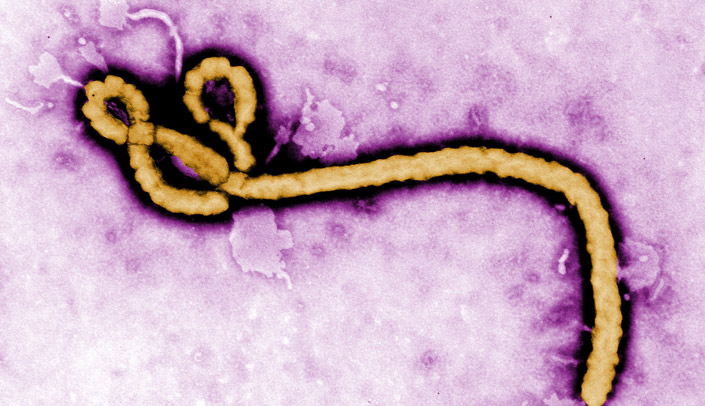A $12 million grant awarded in 2015 to establish the National Ebola Training and Education Center (NETEC) has been doubled to $24 million to allow for a variety of expanded services, including creation of a special pathogens research network.
The NETEC research infrastructure
The infrastructure will include:
- A centralized Institutional Review Board (IRB) of record for NETEC — housed at UNMC.
- A web-based clinical data capture tool and database that collects and coordinates data and conducts rapid analyses to provide feedback on therapeutics and clinical management for all NETEC research — housed at Emory.
- A master training protocol for the research staff at the regional centers.
- Uniform policies, procedures, case report forms and questionnaires for the conduct of basic and clinical research in biocontainment units.
- An annual investigators meeting with clinical research teams from regional treatment facilities, other domestic and international partners to develop, discuss and revise protocols and research resources.
- Coordination of research initiatives for emerging special pathogens that result in critical illness with such research partners as the CDC, National Institutes of Health, United States Army Medical Research Institute, Defense Advanced Research Projects Agency, Biomedical Advanced Research and Development Authority, U.S. Department of Defense and U.S. Department of State.
- Policies and procedures for a biorepository focused on highly infectious diseases in collaboration with ASPR and the CDC.
- In May 2016, NETEC hosted 170 individuals representing all 10 Regional Ebola and Special Pathogens Treatment Center (RESPTC) facilities and five federal organizations at the Annual NETEC RESPTC Summit. The goal of the summit was to increase regional and national collaboration efforts in the care and coordination of patients with suspected or confirmed special pathogens. NETEC will once again host these partners in the second annual RESPTC Summit in Atlanta in June of this year.
The grant awarded to the co-leads of NETEC — UNMC, Emory University in Atlanta, and NYC Health + Hospitals/Bellevue in New York City — will run in tandem with the original five-year grant.
Funding is provided by the Centers for Disease Control and Prevention and the Office of the Assistant Secretary for Preparedness and Response through the U.S. Department of Health and Human Services.
The supplemental $12 million funding will allow the three partner institutions to perform additional site visits, conduct more education and training courses, as well as build the special pathogens research network. This network will include the 10 regional Ebola treatment centers located throughout the U.S. that are specially trained and equipped to handle patients with highly infectious diseases.
The special pathogens research network will allow investigators to conduct rapid response research when a new outbreak occurs, said Chris Kratochvil, M.D., co-principal investigator of NETEC for UNMC, associate vice chancellor for clinical research and vice president for research at Nebraska Medicine, UNMC’s clinical partner.
“It’s not ‘if,’ but ‘when,’ because it’s only a matter of time before another outbreak like Ebola happens,” Dr. Kratochvil said. “When Ebola hit, UNMC, Emory and other institutions were all independently trying to determine the best drug for treatment. It was inefficient — we weren’t using the same protocols, and there was no consistency to the research. Now we can all collaborate to develop medical counter measures together.”
The research infrastructure should be complete by this summer, he said. “Then, research projects will be more efficient and less expensive to conduct because of the shared resources. If a larger study is required, funding will be sought from the National Institutes of Health, federal agencies or industry partners.”
Additionally, the grant will expand preparedness training and site visits of health care providers and facilities on strategies to manage Ebola and other emerging contagious infectious diseases. Since December 2014, the three institutions have trained more than 840 health care workers on all aspects of infection control and patient care for individuals with Ebola.
